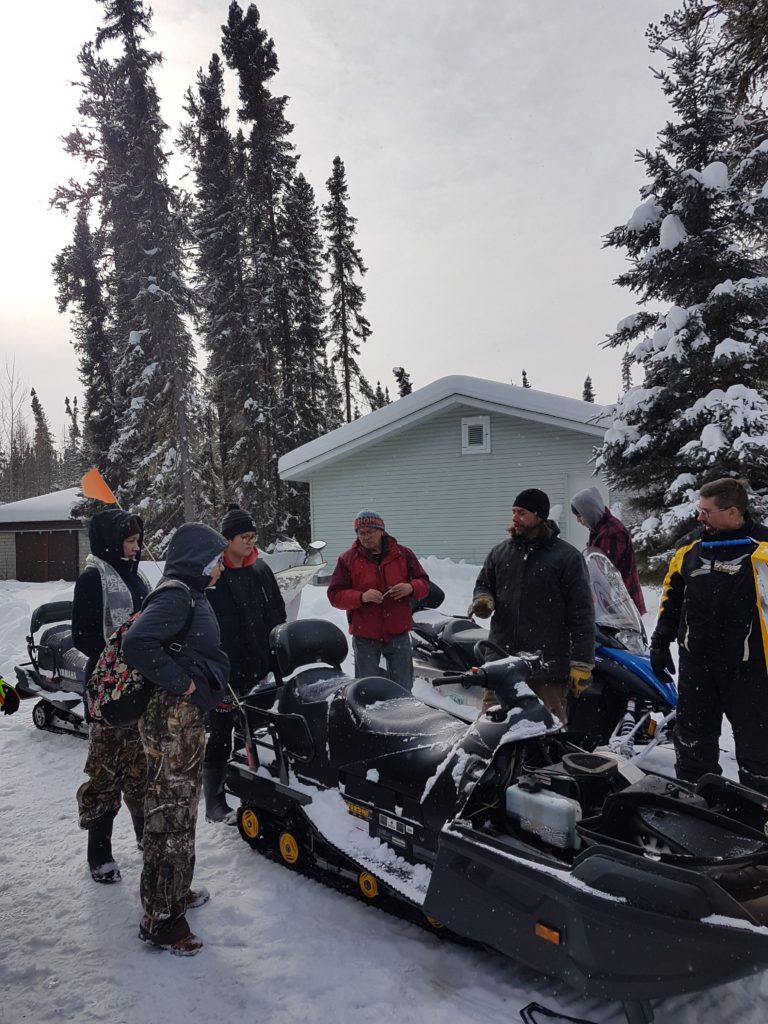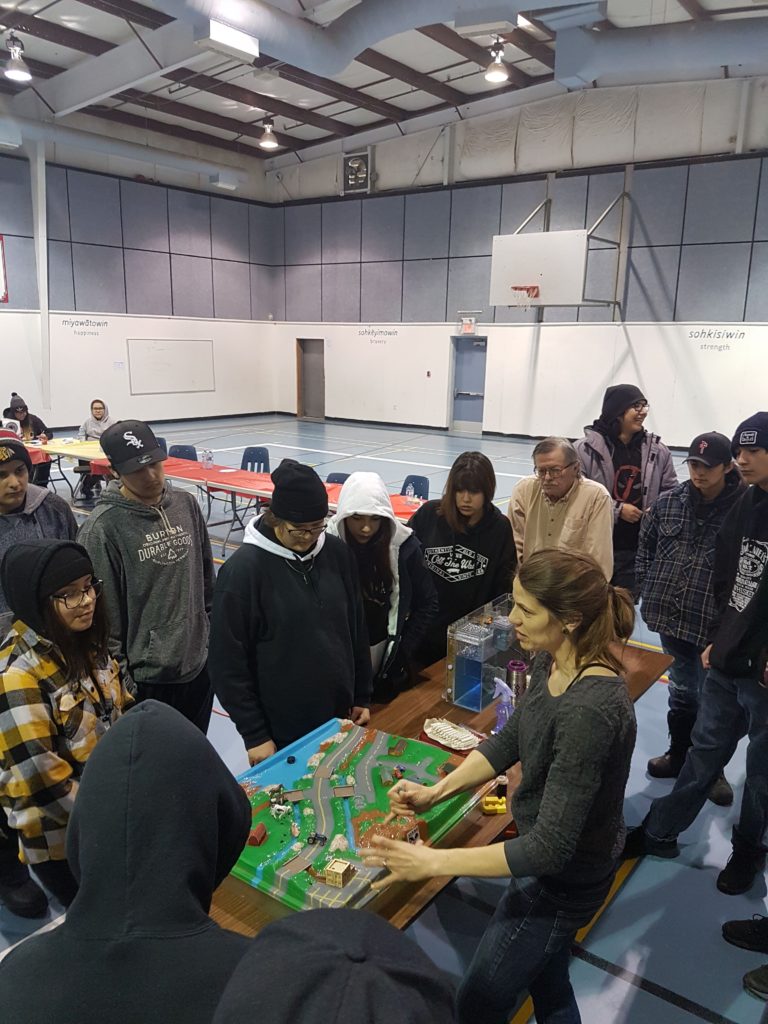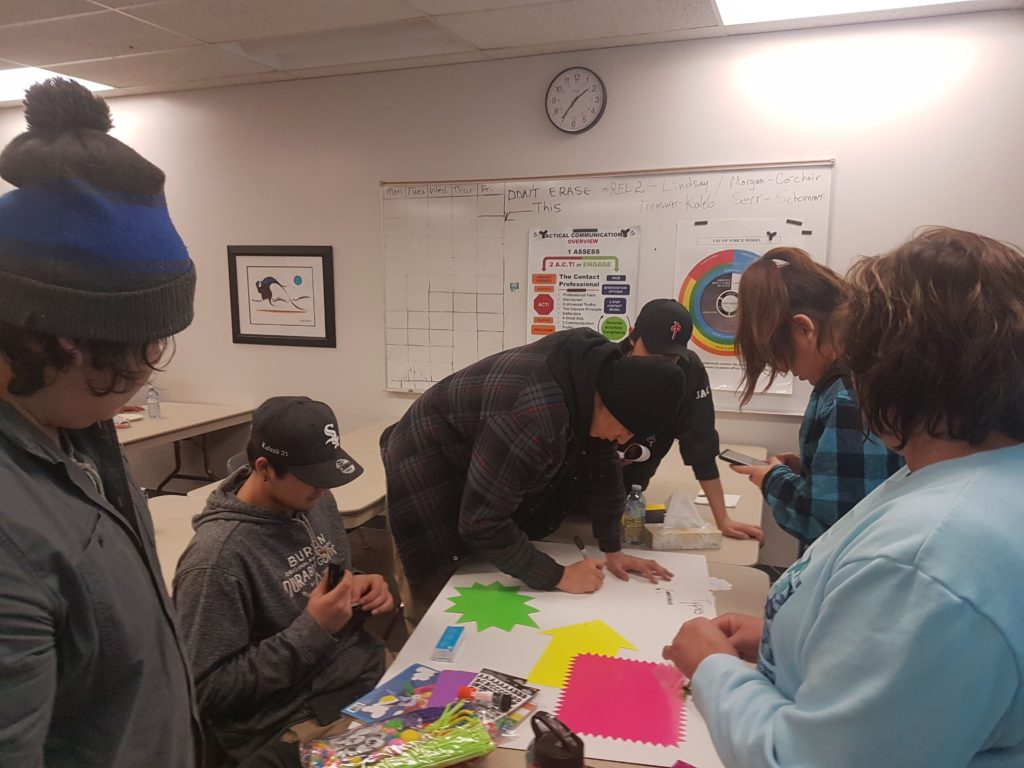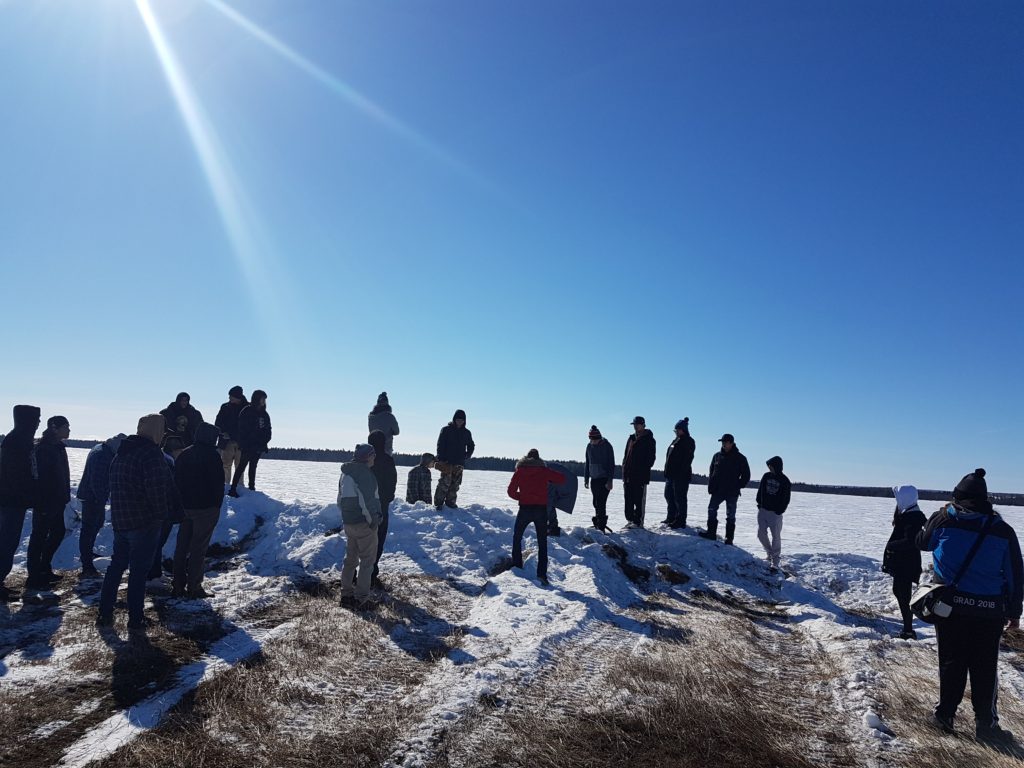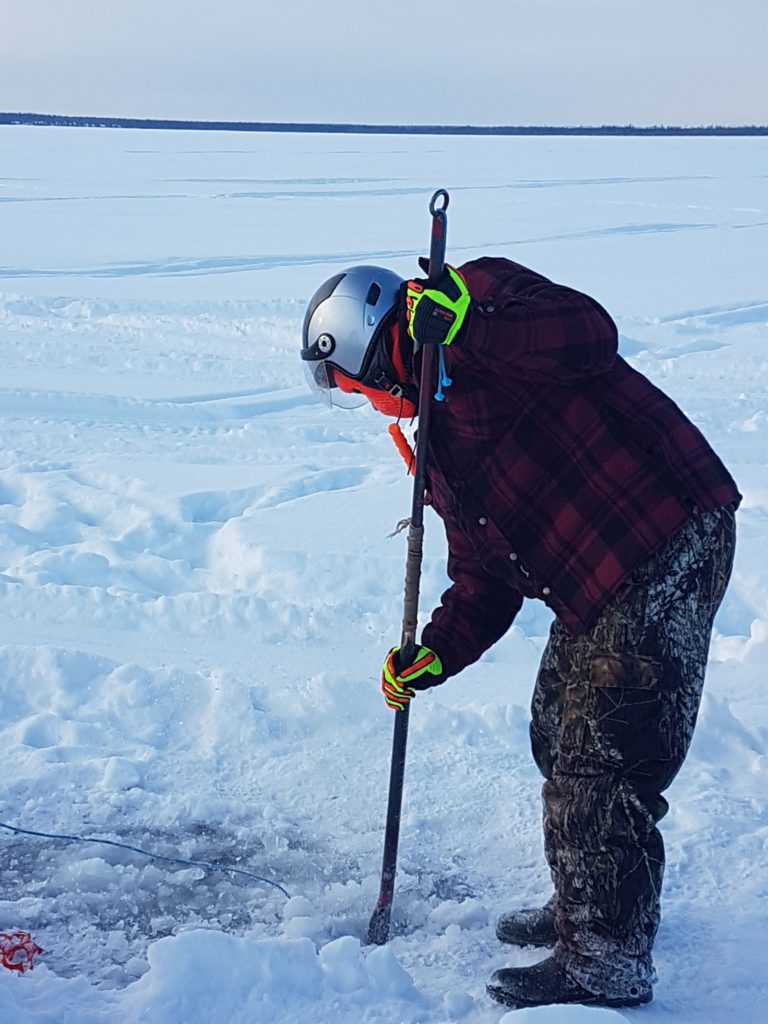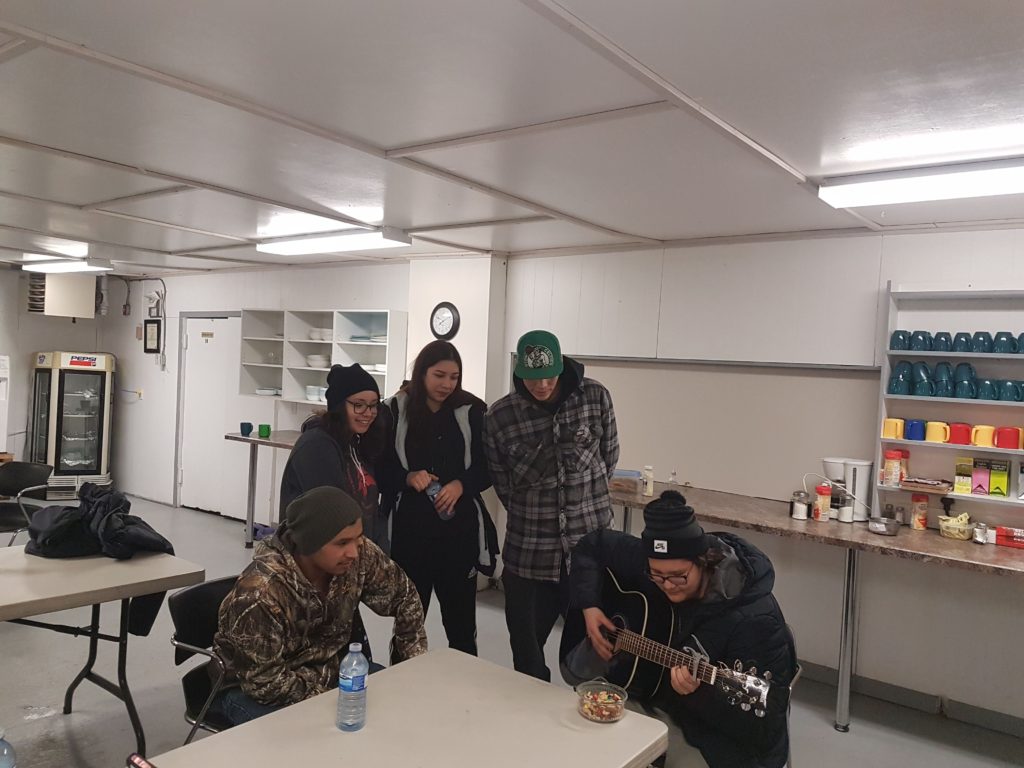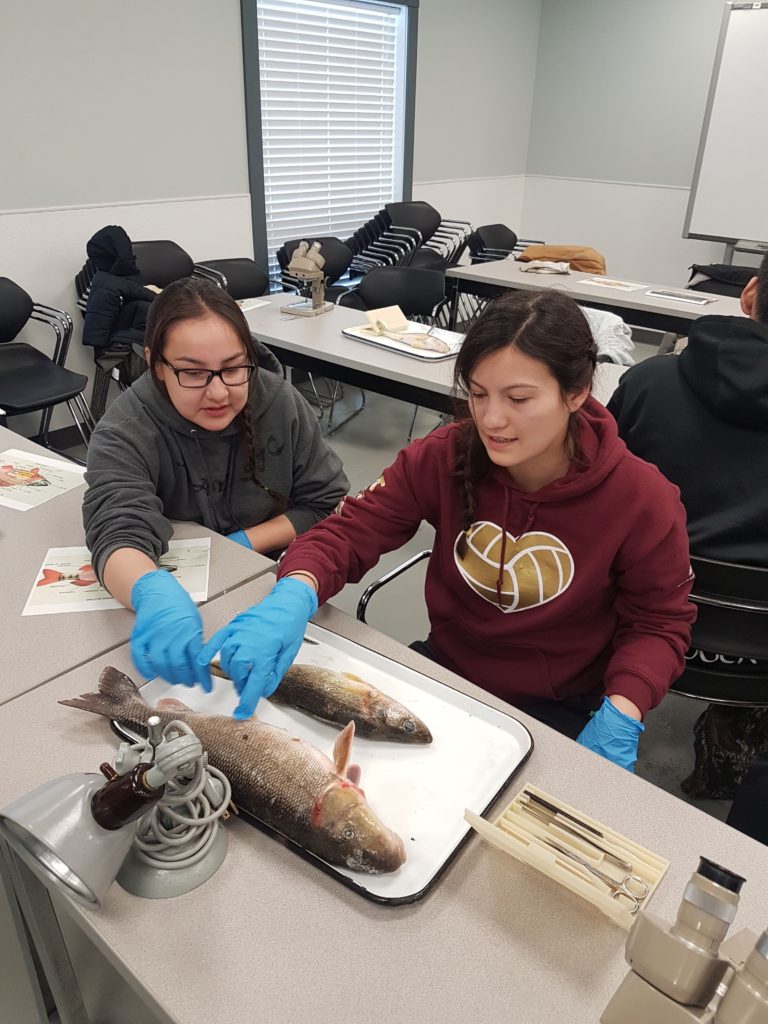Stewards for the Land Program
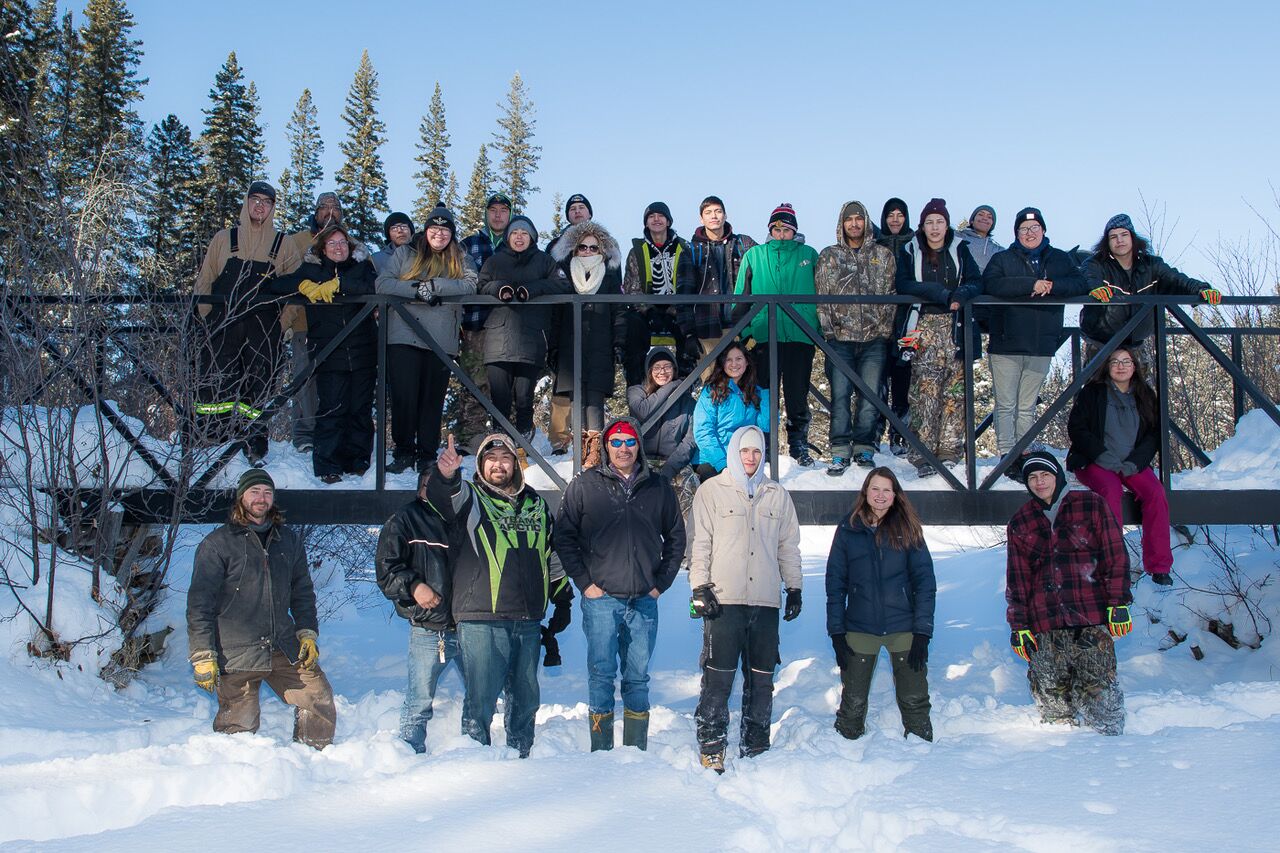
Empowering the next generation of resource management professionals to take charge in their communities.
By Eden Friesen
“Don’t underestimate your stories, and tell them proudly.”
This is the message that Gord Vaadeland, executive director of the Canadian Parks and Wilderness Society Saskatchewan (CPAWS-SK) had to impart upon 31 young people from First Nations communities across Saskatchewan this March.
Previously known as the Junior Resource Ranger program, The Stewards for the Land program is an initiative facilitated by the Prince Albert Model Forest and designed to equip Indigenous youth with the skills necessary to succeed in natural resource management careers.
The vision of the Stewards program is to provide Indigenous youth an opportunity to investigate natural resource careers while learning about their connection to the land and their own cultural heritage—keeping their stories and their traditional ways of interacting with the land alive and well in the face of a new, technology-savvy generation.
Vaadeland, along with representatives from Parks Canada and the Indigenous Tourism Association of Canada, spoke to the students about creating new ecotourism opportunities in their own communities. This ecotourism focused day of lessons was just one of 10— a full two week experience over which these young people (ages 16 to 20) were able to obtain certifications in several natural resource management skills.
Sarah Schmid, general manager of the Prince Albert Model Forest, was “able to help organize and coordinate this program to give youth an opportunity to learn and reconnect to their culture and their land,” and though she went into the experience intending to teach, she is proud to have learned from her students as well.
The Program
Built in partnership between Saskatchewan Polytechnic’s Integrated Resource Management Program, Prince Albert Grand Council, Prince Albert Model Forest, and facilitators from various not-for-profit organizations and First Nations communities in Saskatchewan, the Stewards for the Land program features the development of skills related to Traditional Ecological Knowledge (TEK), cultural awareness, forestry, law, fire management, health, and environmental sciences. The program adopts a holistic approach that combines teachings from Elders, while providing youth with hands-on experiences in basic skills required for natural resource careers.
The previous incarnation of the Stewards program—the Junior Resource Rangers program—produced over 400 graduates and at its peak and had 10 participating communities between 2006 and 2015.
Aboriginal communities encourage participation in programs that connect their youth to natural resources and encourage them to consider it as a career. Building off the successes of the Junior Resource Ranger Program, the Stewards program has been developed with Beardys and Okemasis Cree Nation, Mistawasis Nêhiyawak, and Muskeg Lake Cree Nation.
Over the program’s 10-day duration this March, students were given the opportunity to learn outdoor survival skills (including camping, fishing, wildlife tracking, and living off the land), while also certifying for workplace use of snow machines and gaining experience in riparian assessment and wildfire management. In addition to these skills they were exposed to a range of forestry-related careers and ecotourism possibilities.
The Context
In Western Canada, there has been a drop for Aboriginal people in natural resource occupations. From 2013-2017, the average occupation in the natural resources sector for Aboriginal peoples was 28%, which is a decrease from 29% from 2007-2012. As one in ten Aboriginal people in Canada live in Saskatchewan, this holds significant implications for natural resource sector careers in our province.
In recent years in Saskatchewan, there has been an emphasis on encouraging northern youth to complete grade 12 and look to the natural resource sector as a career path. As over half of Aboriginal people in Saskatchewan are younger then 25 years of age, it is vital to have programs available for these young people to encourage them to enrol in natural resource focused post-secondary programs.
Fortunately, there has been an increase in enrolment in natural resource post-secondary programs in the last few years. For example, enrollment during the 2015-2016 year in the School of Natural Resources and Built Environment at Saskatchewan Polytechnic was 97, which is an increase from 73 in the year 2011-2012.
Prince Albert Model Forest and its partners are proud to be able to offer this program and ones like it to grow Saskatchewan’s natural resource management sector, and to be able to assist in the education of the next generation when it comes to sustainable and renewable methods of land use management in our province.

